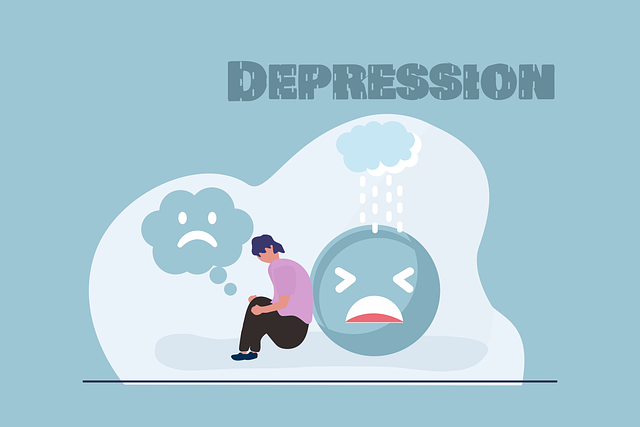To design an effective mental health education program for Colorado Springs tailored to local needs, stakeholders must engage with the community to understand priorities, especially stress management and burnout prevention. The program should address specific challenges like building resilience, managing anxiety, and promoting work-life balance through mindfulness therapy, cultural competency training for healthcare providers, and Mental Wellness Coaching Programs. By incorporating these strategies and a data-driven approach, the initiative ensures accessibility, relevance, and impact, empowering individuals to cope with urban stressors and diverse mental health issues in Colorado Springs Mindfulness Therapy settings.
In Colorado Springs, mental health education programs play a pivotal role in addressing growing psychological challenges. This article delves into the strategic design of an effective mindfulness therapy program tailored to the unique needs of the community. We explore how assessing local priorities through stakeholder engagement and needs assessment surveys guides curriculum development, ensuring evidence-backed practices like cognitive-behavioral techniques integrated with mindfulness.
Accessibility is key; diverse delivery formats, targeted support for underserved populations, and cultural sensitivity foster inclusivity. Continuous improvement relies on data-driven evaluation metrics, participant feedback, and adaptability based on community insights, revolutionizing mental wellness in Colorado Springs through mindfulness therapy.
- Assessing Community Needs and Goals for Mental Health Education
- – Identifying key mental health challenges in Colorado Springs
- – Engaging community stakeholders to understand local priorities
- – Developing a needs assessment survey and focus group discussions
Assessing Community Needs and Goals for Mental Health Education

In designing a mental health education program, understanding the unique needs and goals of the community is paramount. Assessing local priorities involves engaging with various stakeholders, including community leaders, healthcare providers, and individuals from diverse backgrounds to identify pressing mental health concerns. For instance, in Colorado Springs Mindfulness Therapy circles, residents often highlight issues like stress management, burnout prevention, and fostering positive thinking as key areas for intervention. This initial step ensures that the program aligns with the community’s immediate and long-term aspirations, making it more impactful and relevant.
By delving into these needs, organizers can create targeted workshops, seminars, or awareness campaigns addressing specific mental health challenges. Topics such as building resilience, managing anxiety, or promoting work-life balance could emerge as central themes, ultimately enhancing the overall well-being of Colorado Springs residents. Moreover, incorporating strategies for confidence boosting may prove valuable in empowering individuals to navigate life’s challenges with renewed optimism and a sense of agency.
– Identifying key mental health challenges in Colorado Springs

Colorado Springs, like many urban areas, faces unique mental health challenges. The stress and pace of city life can disproportionately impact residents’ well-being. Issues such as anxiety, depression, and stress-related disorders are prevalent, often exacerbated by the high cost of living and competitive job market. Furthermore, access to quality mental healthcare services can be a barrier for many, especially marginalized communities within Colorado Springs.
Addressing these challenges requires a multi-faceted approach. Incorporating mindfulness therapy practices has emerged as an effective strategy in promoting mental wellness. The integration of Colorado Springs Mindfulness Therapy into community programs and educational initiatives can empower individuals with coping mechanisms. Additionally, training healthcare providers on cultural competency ensures that diverse populations receive tailored support. Development of Mental Wellness Coaching Programs and guidance through journaling exercises can further enhance the accessibility and effectiveness of mental health education, fostering a more resilient and supportive community in Colorado Springs.
– Engaging community stakeholders to understand local priorities

Engaging community stakeholders is a vital step in designing an effective mental health education program tailored to local needs. By reaching out and collaborating with various groups within Colorado Springs, such as schools, healthcare providers, community centers, and local government, the program can identify unique challenges and priorities specific to the region. This collaborative approach ensures that the education initiatives are relevant, accessible, and responsive to the diverse mental health landscape of Colorado Springs Mindfulness Therapy.
Understanding the local context is crucial for developing programs that address the root causes of mental health issues. For instance, engaging community leaders and residents can reveal a high demand for stress management techniques, especially in light of the fast-paced lifestyle and potential economic pressures. Consequently, incorporating workshops on mood management and self-care routine development could be at the forefront of the education strategy. Moreover, integrating mindfulness meditation practices, known for their effectiveness in reducing stress and improving overall well-being, can significantly contribute to fostering a healthier mental environment within Colorado Springs.
– Developing a needs assessment survey and focus group discussions

To design an effective mental health education program, it’s essential to begin with a comprehensive needs assessment. This involves distributing surveys to the target population in Colorado Springs Mindfulness Therapy settings, gathering insights on their mental health challenges and areas of interest. Additionally, conducting focus group discussions allows for deeper understanding by exploring cultural sensitivities in mental healthcare practice and identifying specific topics like stress management that require intervention.
The data collected from these assessments guides the curriculum development, ensuring it aligns with the community’s unique needs. By incorporating Crisis Intervention Guidance and focusing on culturally sensitive approaches, the program can effectively address mental health concerns while fostering an inclusive environment.
In designing an effective mental health education program for Colorado Springs, assessing community needs is paramount. By identifying key mental health challenges and engaging stakeholders, we can tailor interventions that resonate with local priorities. Using tools like needs assessment surveys and focus group discussions enables us to create a robust curriculum that addresses the unique psychological landscape of Colorado Springs, potentially enhancing access to mindfulness therapy and overall well-being for all residents.










